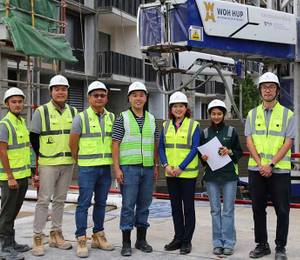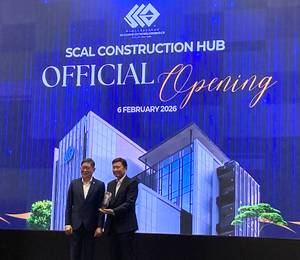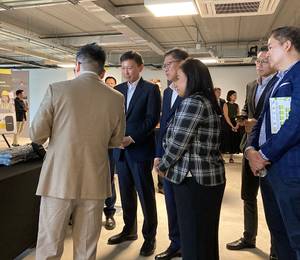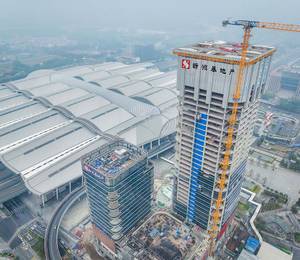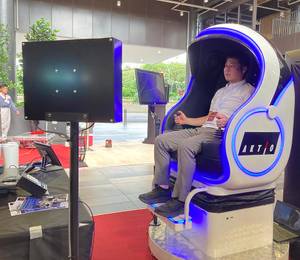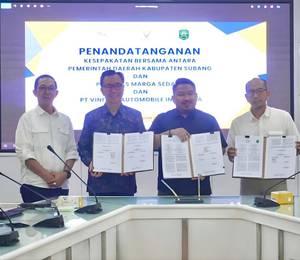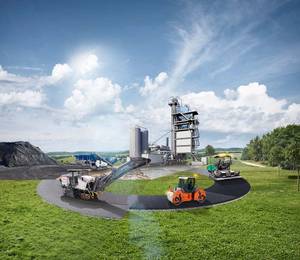Singapore Polytechnic (SP) and Singapore’s trade associations and chambers (TACs) from the built environment (BE) sector have signed eight Memorandums of Understanding (MOUs) to accelerate the digital transformation of building and construction small and medium-sized enterprises (SMEs) in Singapore.
The signings with the Micro Builders Association, Singapore (MBAS), Singapore Building Materials Suppliers’ Association (SBMSA), Singapore Contractors Association Limited (SCAL), Singapore Green Building Council (SGBC), Singapore International Facility Management Association (SIFMA), Singapore Iron Works Merchant Association (SIWMA), Specialists Trade Alliance of Singapore (STAS) and Danfoss Singapore Pte Ltd took place during the International Built Environment Week (IBEW) 2022.
The strategic partnerships with the TACs and BE partners are led by the polytechnic’s SP Alliance & Network (SPAN) and Data Science and Analytics Centre’s (DSAC) initiative to develop new digital capabilities for BE SMEs, which are essential in boosting their operational efficiency and productivity, as well as creating business growth and resilience. In its deepened cooperation with the trade, SP will co-drive the adoption of digital solutions and offerings among the TAC members, and hasten the pace of digital transformation in the BE sector.
The IBEW 2022, jointly organised by the Building and Construction Authority (BCA) and RX Singapore, was held from 5 to 9 September 2022 at Singapore’s Sands Expo & Convention Centre.
End-to-end digital solutions
At the sector-wide level, SP and its trade partners will establish a robust collaboration framework to advance greater innovation and digitalisation in the sector, attract locals to pursue BE careers, and upskill the industry workforce. To achieve this, SP and its partners will collaborate with government agencies to organise events and seminars to promote digital transformation to BE SMEs, and develop talent pipelines through mentorship and internship programmes and joint projects with the SMEs for SP students.
At the enterprise level, SP will leverage its expertise – in areas such as data science and analytics, artificial intelligence (AI), robotics, innovation, and sustainability – to design holistic and customised end-to-end solutions with other ecosystem partners (such as technology providers and government agencies) for BE enterprises to acquire or build up their digitalisation capabilities. Additionally, SP will also provide consultancy and training services to support SMEs to drive higher technology adoption and build a stronger innovation culture. The collaboration is expected to benefit over 1,200 SMEs.
At the BEX Asia 2022 exhibition, which was part of the IBEW 2022, SP highlighted a suite of digital, automation and sustainability solutions. Jointly developed with industry partners and agencies, these solutions included data integration system, IoT sensors for smarter facility management, AI for workplace safety system, autonomous mobile robots, as well as innovations in sustainable advanced materials, energy or carbon efficiency management, and agritech.
“Digitalisation has become a pivotal sustainability enabler for SMEs in the built environment sector. SP will accelerate its digital transformation pace by delivering curated and customised solutions and tools that will enable members of the trade associations and chambers to drive significant and sustainable changes in their green transformation journeys,” said Soh Wai Wah, principal and CEO of SP.
“We will continue to work closely with our industry partners and agencies to empower our built environment SMEs and professionals to harness the power of digitalisation to achieve greater business productivity and performance, as well as sharpen their competitive edge in Singapore and the region.”
Ng Yek Meng, president of SCAL, added, “Digitalisation is an important aspect of our construction industry’s transformation. SCAL is looking forward to partnering with SP to develop digitalisation capabilities for all stakeholders in the construction value chain. It will improve productivity, achieve higher efficiency as well as improve safety standards at construction sites.
“On top of that, the adoption of digital solutions will undoubtedly help to improve the working environment for all construction professionals and workers. This collaboration certainly brings closer the partnership between industry practitioners and institutes of higher learning to train and produce industry-ready professionals.”
Image: BCA

